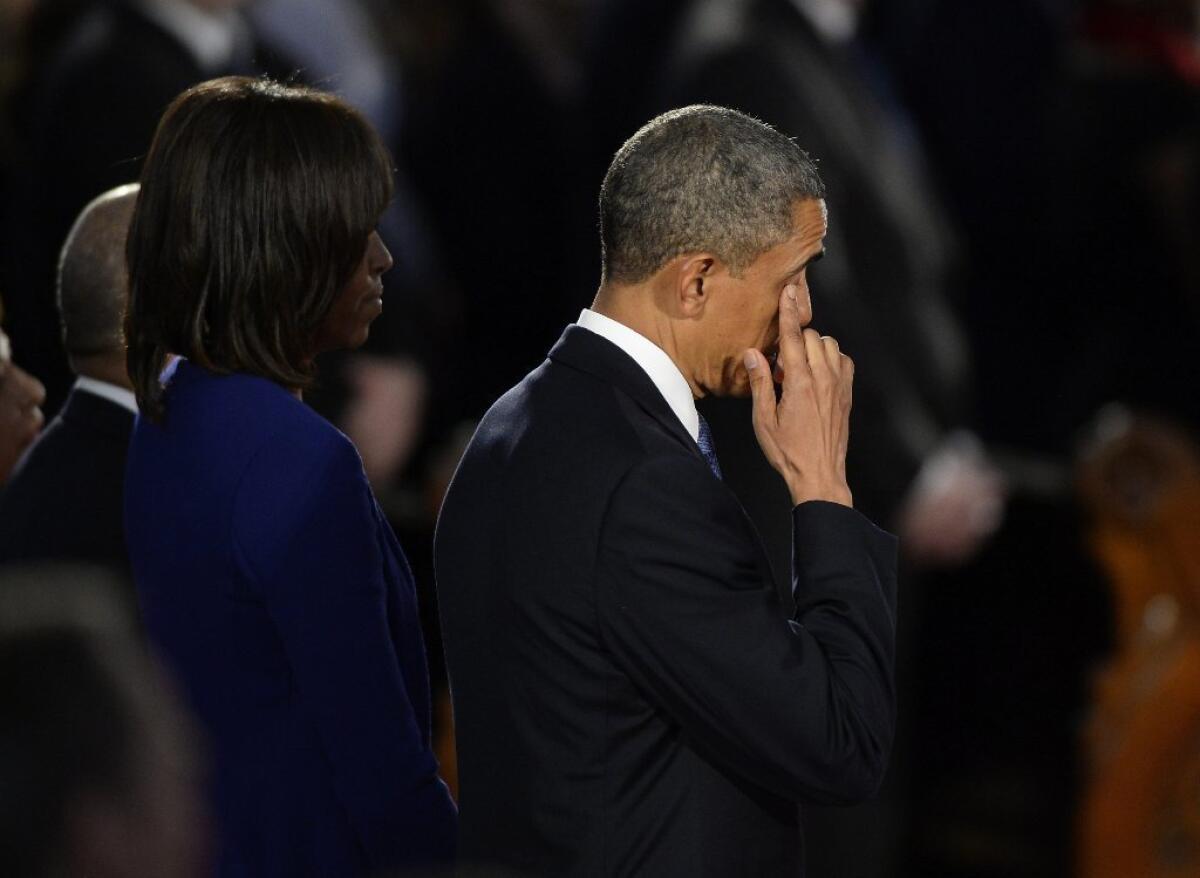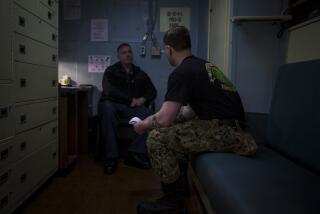Opinion: The Army recognizes humanists in the foxholes

- Share via
There may be no atheists in foxholes, but there soon will be a few humanists. The U.S. Army has heeded the plea of Maj. Ray Bradley that he (and others of his kind) receive a “preference code” similar to those accorded to members of traditional religions.
Religion News Service picks up the story: “In practical terms, the change means humanists could face fewer hurdles in trying to organize within the ranks; military brass would have better information to aid in planning a deceased soldier’s funeral; and it could lay the groundwork for eventually adding humanist chaplains.”
I have written before about the movement to have the U.S. military recognize “nontheist” chaplains. The idea is anathema to some members of Congress (even though, paradoxically, it arguably confirms the conservative mantra that secular humanism is “just another religion”). Rep. John Fleming (R-La.) said the idea of an atheist chaplain was “nonsensical — it’s an oxymoron.”
A lot of other Americans, some of them atheists themselves, feel the same way. They ask: What’s the point? A Christian chaplain can assure the dying soldier that he’ll be in heaven soon. What words of consolation could a humanist/atheist chaplain offer?
Actually I can imagine several. But I don’t have to imagine a humanist who wants to be a chaplain. Last year The Times profiled Jason Heap, a nonbeliever in God who applied to be the Navy’s first humanist chaplain. The idea that chaplains might be called to minister to the armed forces’ humanists, atheists and agnostics reflects a broader movement of nontheists who congregate in ways reminiscent of traditional religion.
They also want to be part of what is sometimes called “civil religion.” Last year some nontheist organizations complained when they were excluded from an interfaith service held in Boston’s Roman Catholic cathedral to honor the victims of the Boston Marathon bombings.
In a column lamenting the exclusion, Greg. M. Epstein, the humanist chaplain at Harvard, cited a Gallup Poll showing that 46.5% of the Massachusetts population was non-religious and noted that Boston-Cambridge-Quincy was among the 10 least religious of 189 metro areas studied by Gallup.
“When the Boston Marathon bombings took place,” Epstein wrote, “many of us in the local humanist/secular/nontheistic community realized almost immediately that our community would be affected profoundly. And indeed it was.” It’s hard to argue that those residents shouldn’t have had a representative at the interfaith ceremony, even if he or she couldn’t join in the praying.
Religion without God may seem like an oxymoron to Fleming, but clearly it make sense to a growing number of Americans, in and out of foxholes.
ALSO:
Regulating e-cigarettes: It’s about time
Britain a ‘Christian country’? Careful there, prime minister!
Follow Michael McGough on Twitter @MichaelMcGough3
More to Read
A cure for the common opinion
Get thought-provoking perspectives with our weekly newsletter.
You may occasionally receive promotional content from the Los Angeles Times.







